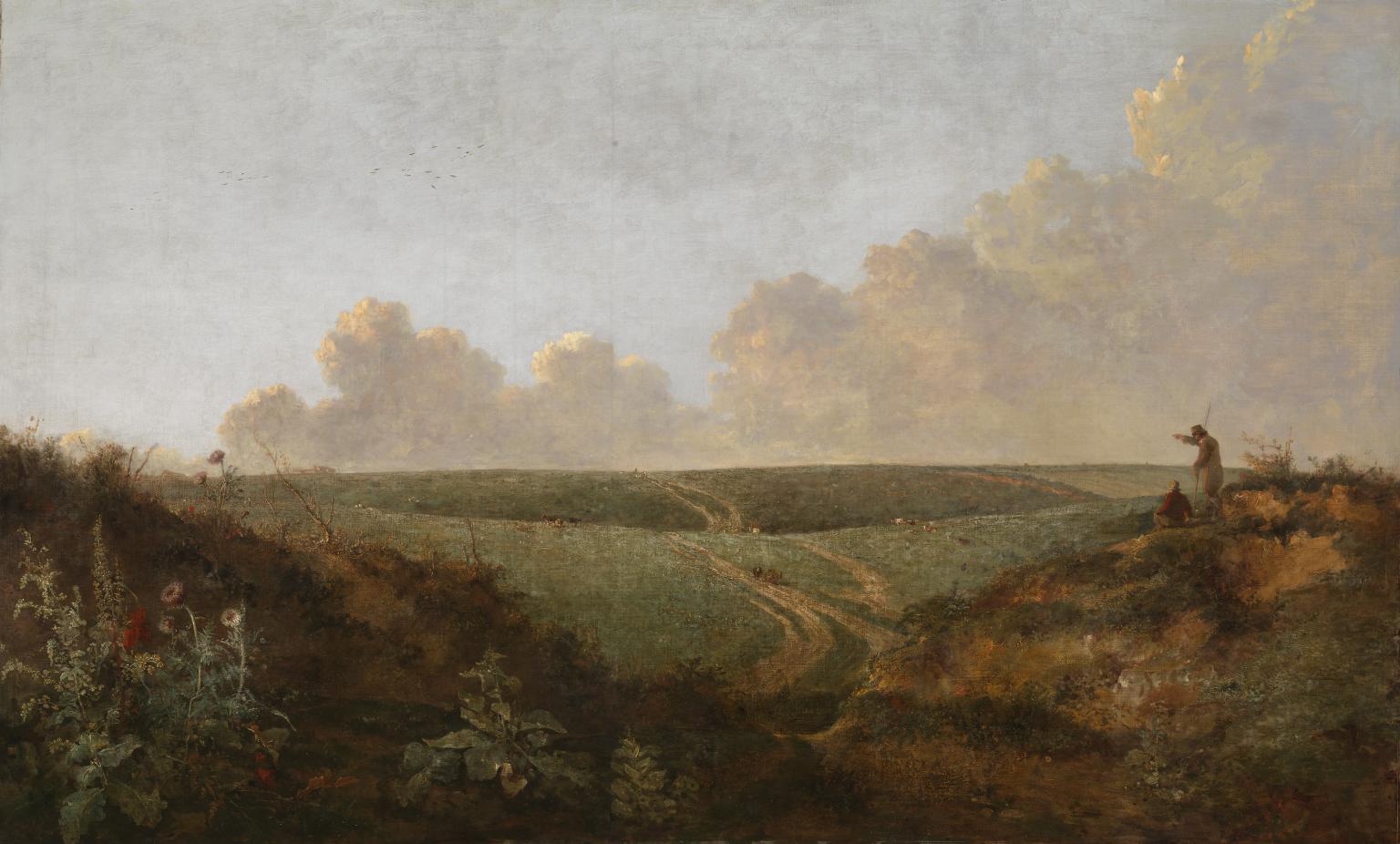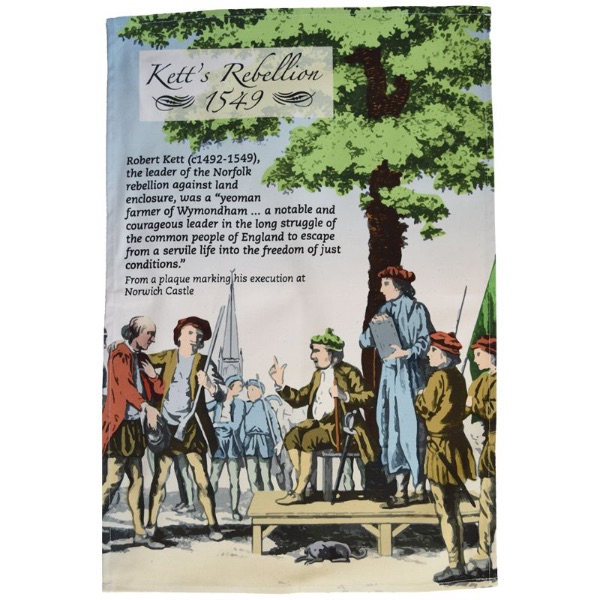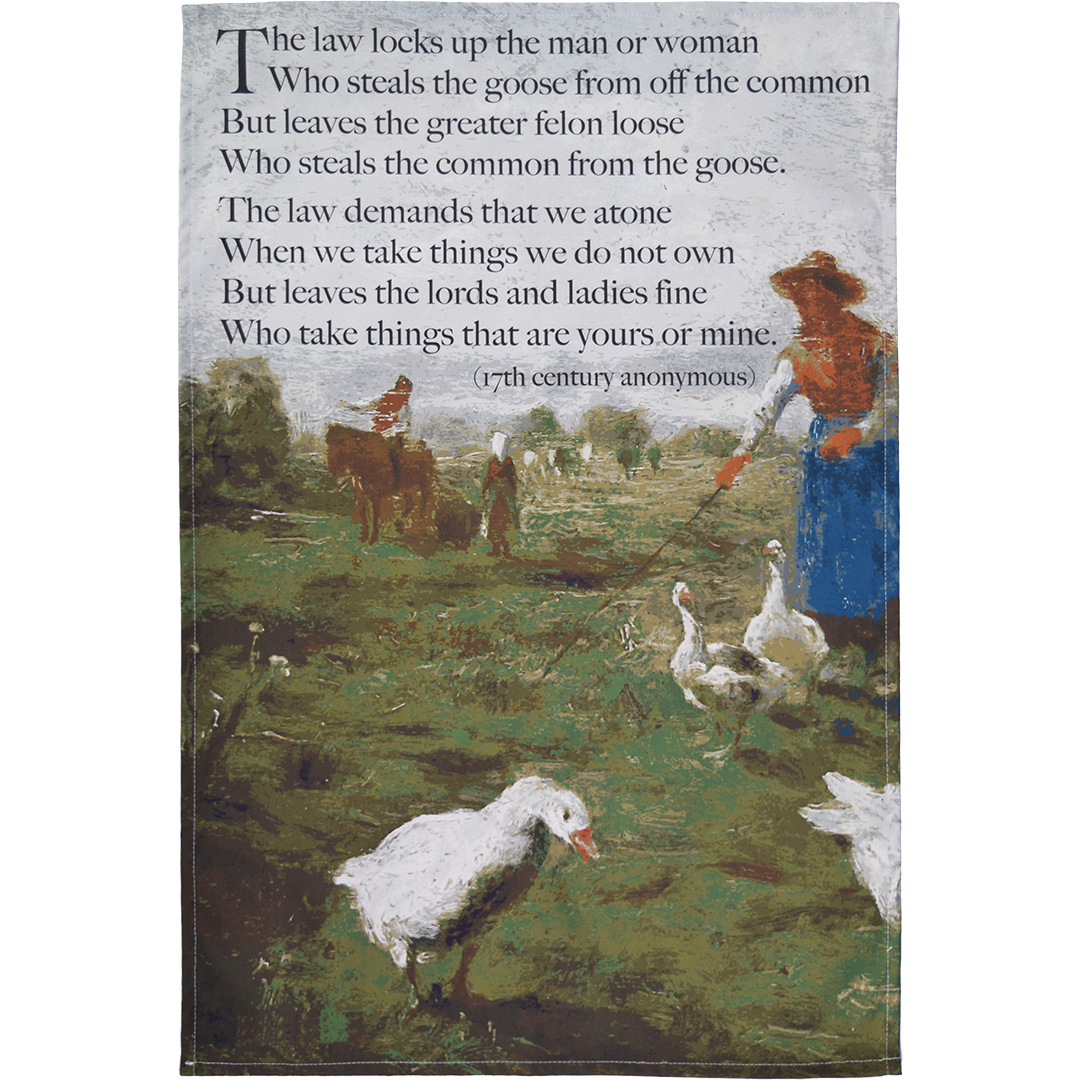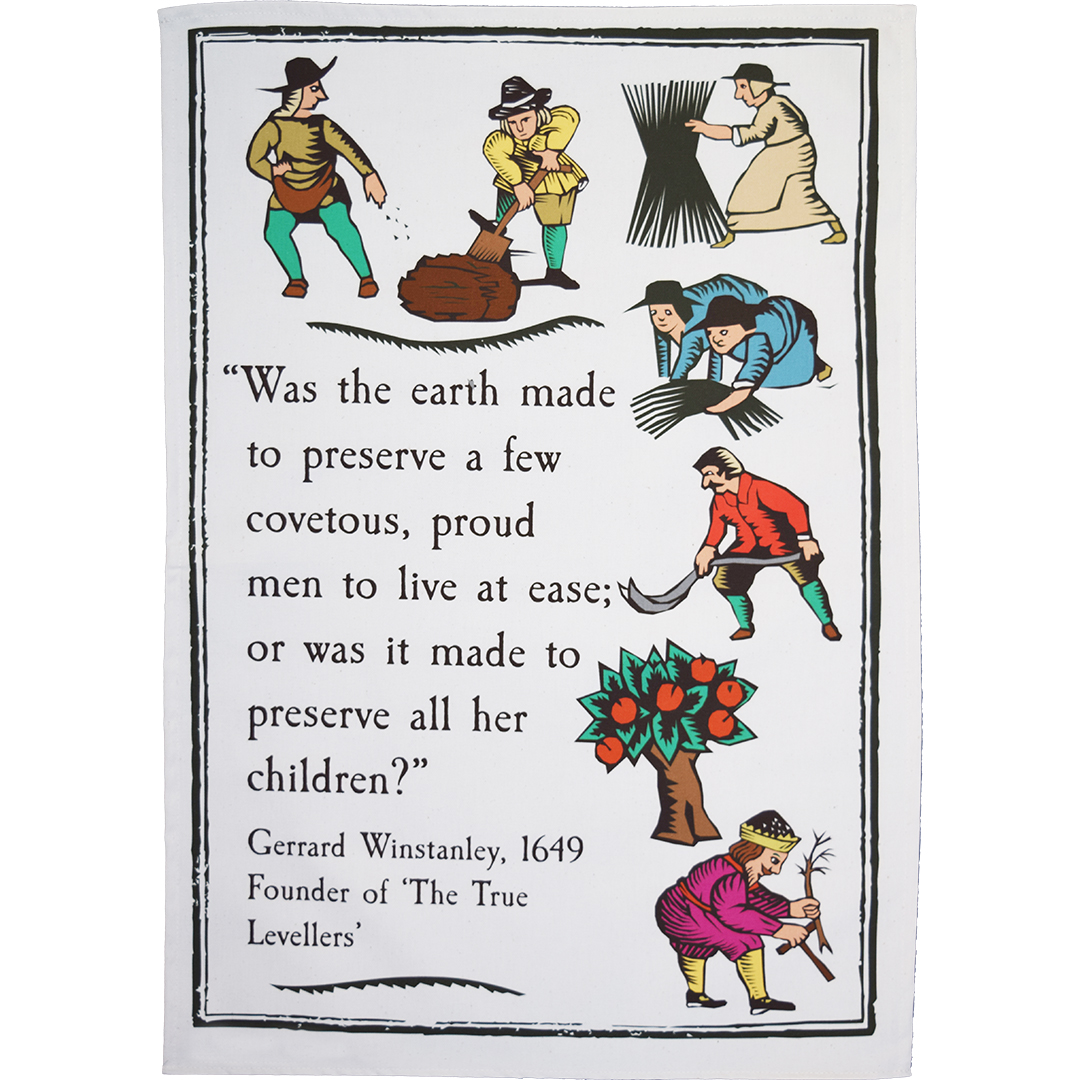Into the Freedom of Just Conditions: The Story of Kett's Rebellion
Posted by Pete on 7th Dec 2023

Executed on this day in 1549, Robert Kett led 16,000 rebels in their struggle for land and justice
Reactionaries have often celebrated pre-modern England as an era when the masses ‘knew their place’ – a time before radical history.
But that couldn’t be further from the truth.
The struggle for freedom and justice didn’t begin with the Industrial Revolution or the English Civil War.
In fact, wherever you look in British history, there’s radical inspiration to be found.
Kett's rebels fought "to escape from a servile life into the freedom of just conditions"
See the Kett's Rebellion tea towel
The
Peasant's Revolt of 1381 has been a lasting source of pride for radicals in England. Five hundred years later, William Morris turned to those Kentish rebels to encourage socialists in the nineteenth century.
But perhaps the most persistent radical struggle of the pre-industrial past was the struggle against enclosure.
Over centuries, common lands in rural Britain were ‘enclosed’ – i.e., stolen – by rich landowners, with the full backing of the state.
Land that used to be farmed by ordinary rural workers and small farmers was now in the hands of a wealthy minority.
Those workers now had to sell their labour just to survive – often being forced to work for the very aristocrats who had robbed their common farmland.
But ordinary people in all periods of history are full of dignity and courage. We don’t often accept injustice without protest.
The Goose and the Common is a protest rhyme from the end of the 17th century, railing against the enclosure of common land farmed by peasants or grazed by their livestock
So, rural workers in early modern Britain took a stand against the enclosures.
In July 1549, thousands of people in Norfolk launched a rebellion against the theft of their land by state-supported aristocrats.
Their leader was a man called Robert Kett.
Possibly a tanner by trade, Kett was an agitator from Wymondham. Before 1549, he had already led a band of local men to tear down enclosure fences put up by John Flowerdew, a Norfolk landowner who was also a Westminster MP and a judge.
But there was more to come. Much more.
As the loss of land and dignity began to anger people across Norfolk, a feast at Robert Kett’s house broke out into a full-grown rebellion.
Under Kett’s leadership, this was no disorderly ‘mob’. He soon turned the rebels into a disciplined and politically conscious army.
Kett led the rebel force – 16,000 strong – towards the county’s main city, Norwich.
He made a headquarters at Mousehold Heath, and appointed a judge to keep order among the troops.
Kett’s rebels also published a list of 29 demands, which they sent directly to the Lord Protector, Edward Seymour.
The petition demanded that the Crown, rather than side with the avarice and land-hunger of the rural gentry, should instead restrain that class.
One hundred years after Kett's Rebellion, Gerrard Winstanley's True Levellers reclaimed common land on St George's Hill in Surrey
See the True Levellers tea towel
Their petition sought not only to outlaw the practices by which large landowners had been gradually expropriating small ones, but also to guarantee the economic rights of common people.
“We pray that rivers may be free and common to all men for fishing and passage.”
A royal amnesty was quickly offered to the rebels: a sign of how terrified the ruling class was of the armed strength and political awareness of Kett’s Rebellion.
But Kett refused – innocent men had no need for amnesties.
On 1 August 1549, Kett conquered the city of Norwich. Eastern England was now in the hands of its people.
But Kett’s triumph was not to last.
A royal army under the Earl of Warwick, hastily reinforced by foreign mercenaries, retook Norwich.
Despite being faced by professional soldiers, the Norfolk rebels put up a fierce resistance on the battlefield, but it was not quite enough.
On 27 August 1549, Kett’s Rebellion was defeated at the Battle of Dussindale.
Captured by Warwick’s mercenaries, Robert Kett and his brother William were executed for treason on 7 December 1549, 474 years ago today.
The defeat of Kett’s Rebellion, and the countless other acts of resistance to enclosure in early-modern Britain, paved the way for capitalist agriculture and industrialisation in the eighteenth and nineteenth centuries.
This opened a new chapter in the radical history of the British Isles, characterised especially by the new
industrial working class.
But the pre-modern legacy of radical struggle remained rich – and powerful.
From the
Kinder Trespassers to recent Right to Roam campaigners, people in Britain have continued struggling, like Robert Kett, against the land regime which was so violently created by enclosures. Five centuries later, Kett’s Rebellion is still living history.



